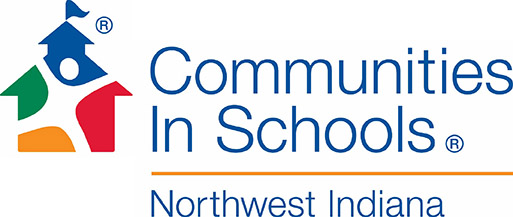TRAINING AND CERTIFICATION
PASSport to Student Success
Communities In Schools of Northwest Indiana is a Regional Training Center for the National Tutoring Association. As an NTA Regional Training Center, CIS of Lake County offers tutor certification and training. The training is offered at three levels: Basic, Intermediate and Advanced. Upon successful completion of each training participants receive:
- Certification at the level completed – Must complete each level in sequence i.e, Basic, Intermediate, Advanced
- Membership in the National Tutoring Association
- Workbook – Each certification level requires a different workbook
Requirements:
- Complete application for Certification – Available through the CIS /NTA Regional Training Center
- Copy of High School or College Transcript
- Background Check – included in the cost of training
- Fingerprint Screening – included in the cost of training
It is our recommendation that Tutors complete all levels of certification, however, a minimum of Basic and Intermediate.
Please call for pricing – 219-378-9114
MENTORING MODULE DESCRIPTIONS
“Building the Mentoring Relationship” module focus on defining the role of a mentor. They prepare mentors for the task of connecting with young people and planning activities with them to meet match needs.
“Setting Boundaries” module discusses the appropriate boundaries between mentors and mentees. It explores the importance of these boundaries, including boundaries set by programs and by the families of mentees, in keeping both mentors and mentees safe in relationships. Activities also touch on how to recognize when boundaries are crossed and what to do in those instances.
“Communication” module introduces mentors to basic communication skills as well as tools to allow mentors to more smoothly communicate with mentees and mentees’ families from differing backgrounds. This section also includes activities that teach problem-solving skills, goal setting and teamwork.
“Youth Development” module introduces mentors to the various issues important to young people and communicates how young people develop their skills. Though these skills may not always be academic and adults at school or home may not value them, they still are important to a young person. These in-depth activities tackle subjects such as bullying, exploring youth interests, cultivating safe spaces for youth and thinking through decision making in an age-appropriate way.
“Cultural Competency” training activities touch on issues of difference by helping mentors to acknowledge and appreciate the various backgrounds they may encounter during mentoring. This section also introduces mentors to ways to interact with people different from themselves. It encourages mentors to celebrate differences and acknowledge how differences can be a learning opportunity for both the mentor and mentee.
PLEASE CALL Communities In Schools of Northwest Indiana FOR PRICING: 219-378-9114
TUTOR TRAINING
BASIC
Main Topics
- Balancing Your Roles As a Tutor: Ethics, Etiquette, and Technique
- Basic Tutoring Procedures
- Effective Listening Strategies
- Effective Speaking: Getting Your Ideas Across
- Non-Verbal Communication
- Individual and Group Dynamics in the Tutoring Process
- The Role of Cultural Awareness and Understanding Culture Shock
- Using Praise Effectively
- The Socratic Method
- Andragogy vs. Pedagogy
- Critical Thinking
- Thinking Ruts and Procrastination
Outcomes – Learners will:
- Improve their ability to analyze and incorporate appropriate ethics, etiquette, and techniques within tutoring sessions.
- Learn the primary steps to prepare for the initial tutoring session with a new student and develop a basic lesson plan outline for later ones.
- Demonstrate understanding and use of better listening, speaking, and non-verbal skills as well as strategies to improve tutor/student communication.
- Identify the primary distinctions between individual and small group tutorial sessions and list strategies for each type of situation
- Demonstrate how to manage small group tutoring sessions.
- Identify how verbal tone and emphasis alter the meaning of a spoken message.
- Understand how the four stages of culture shock relate to students.
- Study the use of effective versus an ineffective use of praise during a tutorial session.
- Demonstrate Socratic questioning skills in an
andragogical - Experience why critical thinking skills are important to one’s own academic and personal choices and to the academic and personal choices of students.
- Learn the common causes of student procrastination and how they can be avoided.
INTERMEDIATE
Main Topics
- Tutor Ethics
- Basic Tutoring Procedures
- Prescriptive Learning vs. Tutoring
- Assessment Methods
- Applying Bloom’s Taxonomy
- Knowing When to End a Tutoring Relationship
- Learning Styles/Study Preferences
- Test Preparation/Test Taking Tips
- Barriers to Effective Reading
- The SQ3R Reading System
- Test Preparation Tips
- Reading and Writing Development
Outcomes – Learners will:
- Improve their ability to analyze and incorporate appropriate ethics, etiquette, and techniques within tutoring sessions.
- Learn the primary steps to prepare for the initial tutoring session with a new student and prepare a basic lesson plan outline for later ones.
- Demonstrate a clear knowledge of the difference between prescriptive learning and tutoring.
- Easily define the following types of assessment: diagnostic, formal, informal, subjective, objective, norm-referenced, criterion referenced, summative, and formative.
- Create a sample lesson plan utilizing the six levels of Bloom’s Taxonomy.
- Analyze situations in which it is appropriate for a tutor to stop working with a student.
- Learn how to guide the student in creating an effective learning environment by creating appropriate study areas, understanding study preferences, and finding ways to actively engage in the process of academic studying.
- Demonstrate the ability to provide students with appropriate general study skills, test preparation, and test-taking tips.
- Identify and address six common barriers to effective reading.
- Employ the SQ3R method for textbook study.
- Learn to use and share a four-stage writing development technique.
- Demonstrate “free writing” skills.
ADVANCED
Main Topics
- Building Relationships with Students, Parents & Faculty
- Dealing with Difficult Students and Situations
- Techniques for Conflict Resolution
- Recognizing When You Need Assistance
- Short and Long Term Benefits of Effective Time Management
- Time Management Strategies
- Causes of Stress/How to Reduce It
- FERPA, HIPAA, IDEA, the Rehabilitation Act and the ADA
- Sexual Harassment
- Copyright Issues for Educators
Outcomes – Learners will:
- Demonstrate the ability to employ the appropriate techniques to empathize, build trust, and communicate effectively with students, parents, and faculty.
- Analyze and select appropriate strategies for dealing with difficult students and the reasons why tutors must refrain from “labeling”.
- Demonstrate appropriate conflict resolution skills.
- Learn about a variety of urgent signals that a student requires outside assistance.
- Document the ability to refer students to the correct campus community services as needed
- Learn about the short and long-term benefits of time management.
- Evaluate the “Time Bandits” that can steal from a student’s time management bank account.
- Help a student build a personal time schedule that incorporates appropriate study time.
- Identify major stressors that contribute to study problems and symptoms or signals of students experiencing extreme stress.
- Create appropriate stress management plans for three student types.
- Review FERPA, HIPAA, IDEA, the Rehabilitation Act and the ADA and their impact on tutoring sessions.
- Exhibit appropriate behavior in a sexual harassment situation.
- Apply copyright law through the correct application of “Fair Use”.

Tel: 219-378-9114
Fax: 219-398-9118




